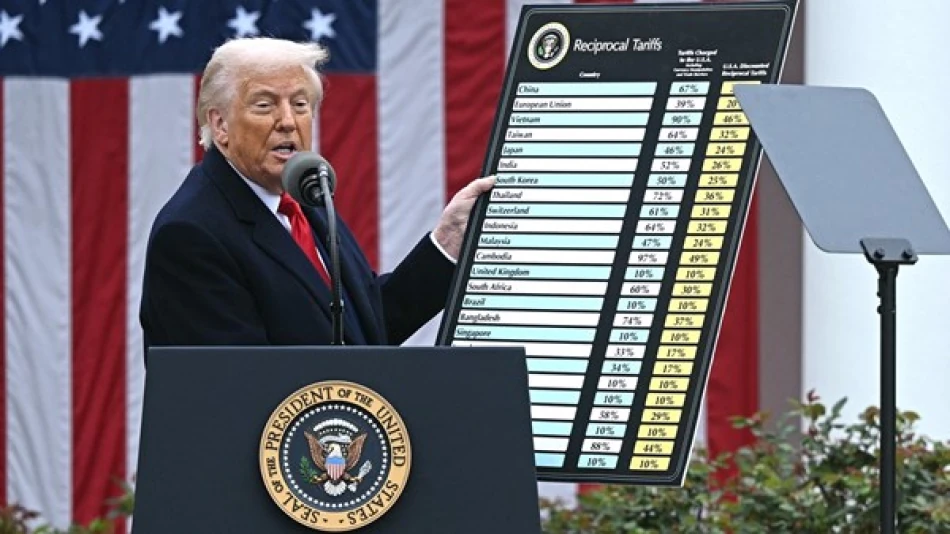
Trump Reveals India's Offer to Eliminate Tariffs on U.S. Goods
Trump Dismisses India's Zero-Tariff Offer as "Too Late" Amid Escalating Trade War
President Donald Trump has rejected India's reported offer to eliminate tariffs on American goods, calling the proposal overdue as the U.S. implements sweeping tariffs of up to 50% on Indian imports. The move signals a hardening stance in what could become one of the most significant trade disputes of Trump's second term, potentially reshaping the economic relationship between the world's largest democracies.
The Ultimatum That Came Too Late
Speaking on his Truth Social platform Monday, Trump characterized the U.S.-India relationship as fundamentally "one-sided" and dismissed New Delhi's zero-tariff proposal with pointed criticism. "They have now offered to reduce their tariffs to zero, but it's too late... They should have done this years ago," the president wrote.
The timing of India's offer appears calculated to defuse tensions just as Trump's new tariff regime takes effect, but the president's swift rejection suggests his administration views trade concessions as insufficient without broader structural changes to the bilateral relationship.
A Strategic Miscalculation by New Delhi
India's belated offer exposes a critical misreading of Trump's negotiating style. Unlike his first term, where last-minute deals often materialized, Trump appears less willing to accept what he perceives as reactive concessions. The zero-tariff proposal—which would have been groundbreaking just months ago—now looks like damage control rather than genuine partnership.
The Indian Embassy in Washington has yet to respond to Trump's comments, suggesting New Delhi may be recalibrating its approach. This silence is telling, as India typically responds quickly to high-profile trade disputes.
Economic Implications for Both Nations
India's Export Vulnerability
The 50% tariffs strike at the heart of India's export economy, targeting sectors where the country has built competitive advantages over decades. Indian pharmaceutical companies, textile manufacturers, and IT services providers—who collectively employ millions—now face potential market share losses in their largest export destination.
For context, the U.S. represents roughly 18% of India's total exports, making it irreplaceable in the short term. Unlike China, which has diversified its export markets significantly since 2018, India remains heavily dependent on American consumers and businesses.
American Consumer Impact
U.S. importers and consumers will likely face higher costs for generic pharmaceuticals, where Indian companies hold substantial market share, and textiles. However, Trump's calculation appears to be that short-term consumer pain will pressure India into more comprehensive trade reforms.
Broader Geopolitical Context
This trade dispute complicates the U.S.-India strategic partnership at a time when both countries need each other to counter China's regional influence. Unlike Trump's trade war with China, which had clear strategic dimensions, the India dispute appears more narrowly focused on trade imbalances.
The rejection of India's offer also sends a message to other trading partners: Trump's second-term approach may be less transactional and more punitive than his first. Countries like Mexico, Canada, and EU members watching this dispute unfold may need to prepare more comprehensive concession packages.
What Comes Next
India's options are now limited. The country could retaliate with its own tariffs on American goods, but this risks escalating a dispute it cannot win economically. More likely, New Delhi will seek to expand its offer beyond tariffs to include market access reforms, intellectual property protections, or defense procurement commitments.
For Trump, maintaining pressure on India while managing the China relationship and USMCA obligations will test his administration's bandwidth. The president's "too late" stance suggests he believes economic leverage is at its peak and comprehensive deals are still possible—but only on his terms.
The coming weeks will reveal whether India's zero-tariff gambit was an opening move or a final offer, and whether Trump's rejection reflects genuine disinterest or negotiating theater designed to extract even greater concessions.
Most Viewed News

 Layla Al Mansoori
Layla Al Mansoori






